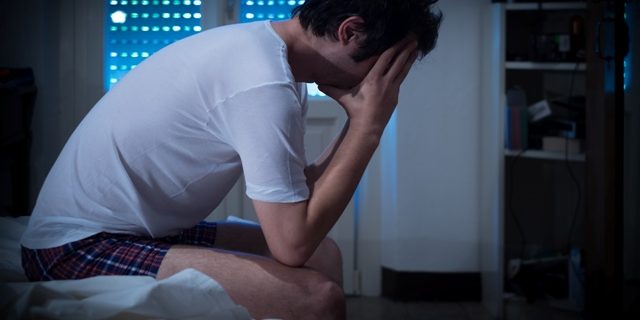Insomnia and substance abuse is a vicious cycle that can be difficult to break, with both intensifying and contributing to the other. Insomnia may affect everyone from time to time, but when it becomes an issue that interferes with daily life, many people turn to drugs and alcohol to self medicate in order to sleep.
Substance Abuse and Insomnia A Vicious Cycle- Positive Sobriety Institute
Substance Abuse and Insomnia—A Vicious Cycle
Alcohol is the most commonly used substance to help induce sleep because it is a depressant. Having a glass or two of red wine or that stiff drink to unwind and relax may initially produce feelings of sleepiness, but in reality it disrupts healthy sleep patterns that cause a much larger problem. Studies show that although having a nightcap may help you doze off, you’re likely to wake often in the night and feel tired and lethargic the following day.
Dr. Mark Gold, Chairman of RiverMend Health’s Scientific Advisory Board, interviewed addiction specialist Dr. William Vaughn McCall, Chairman of Psychiatry and Health Behavior at Augusta University, on the connection between addiction and sleep. Dr. McCall discussed how alcohol interferes with REM sleep, leading to awakenings throughout the night and an overall feeling of restlessness.
“Specifically regarding alcoholism – drinking alcohol will usually speed the onset to sleep (called ‘sleep latency’), but a few hours later, as the alcohol is metabolized, sleep will become progressively disturbed. This is related, in part, to the suppression of rapid eye movement sleep (REM) in the first portion of the night while blood alcohol levels are high, then a rebounding return of REM sleep in the second half of the night as blood alcohol levels approach zero. REM sleep is a highly activated state, characterized by dreaming, high brain metabolism, and faster ‘wake-like’ brain rhythms. This highly activated state, when accentuated by middle of the night alcohol withdrawal, will lead to middle of the night awakenings, early morning awakening, and the perception of restless sleep”, Vaughn says.
Alcohol isn’t the only substance that contributes to sleep disorders. Benzodiazepines are often prescribed to give patients temporary relief, but they are not meant for long-term use. Ativan, Xanax and Klonopin are common benzodiazepines used to treat insomnia and are highly addictive. People may develop a dependence on these drugs because they feel they cannot sleep without them.
Other common drugs used to treat sleep problems like Ambien and Sonata, only offer short-term relief. Individuals can develop an addiction because they use them for longer periods of time than intended for fear that their insomnia will come back.
Stimulants like cocaine and amphetamines may also be abused when people suffer from insomnia. Individuals may feel exhausted and lethargic during the day due to lack of sleep and may use these types of drugs to “pep up”. Although these drugs may increase feelings of wakefulness, the body will eventually begin to slow down when the need for sleep sets in, causing the person to take more of the drug to stay awake and alert in order to function during waking hours.
Opioid abuse presents an even more alarming issue because of the suppression of normal respiratory rhythms during sleep. These effects are exacerbated even more if mixed with benzodiazepines, a lethal cocktail that can lead to death.
Insomnia Jeopardizes Recovery
When insomnia becomes a big issue, it’s not uncommon for people to feel a preoccupation with getting sleep and trying to resolve the problem. Turning to drugs and alcohol is a short-term fix that produces long-term problems and effects. Insomnia can lead to addiction and cause relapse. But there are ways to treat insomnia that over time will get you back on track and sleeping again. Cognitive therapy is a good place to start because you may be able to uncover the root of the emotional problem that triggered your insomnia. Natural supplements like melatonin and valerian root may be helpful, but you should talk to your doctor first if you decide to give them a try. Other methods to combat insomnia include:
- Limiting or abstaining from caffeine.
- Limiting or abstaining from tobacco.
- Waking at the same time every day and going to bed at the same time every night.
- No napping during the day.
- A few hours before bedtime limit screen time (such as smart phones, iPads, tablets, etc.) and keep lights dim in your bedroom.
- Don’t watch the clock if you happen to wake up at night.
- Try a relaxing warm bath close to bedtime.
The vicious cycle of sleep disorders and addiction can feel like a nightmare. It’s important to understand that you cannot “fix” insomnia with drug and alcohol use. You need professional help to address and treat both issues in order to heal and live a happy and healthy life. If you or a loved one is suffering from the crippling effects of insomnia and addiction, Positive Sobriety Institute can help. Call (312) 312-9000 or email admissions@positivesobrietyinstitute.com to speak with an addiction specialist today.


